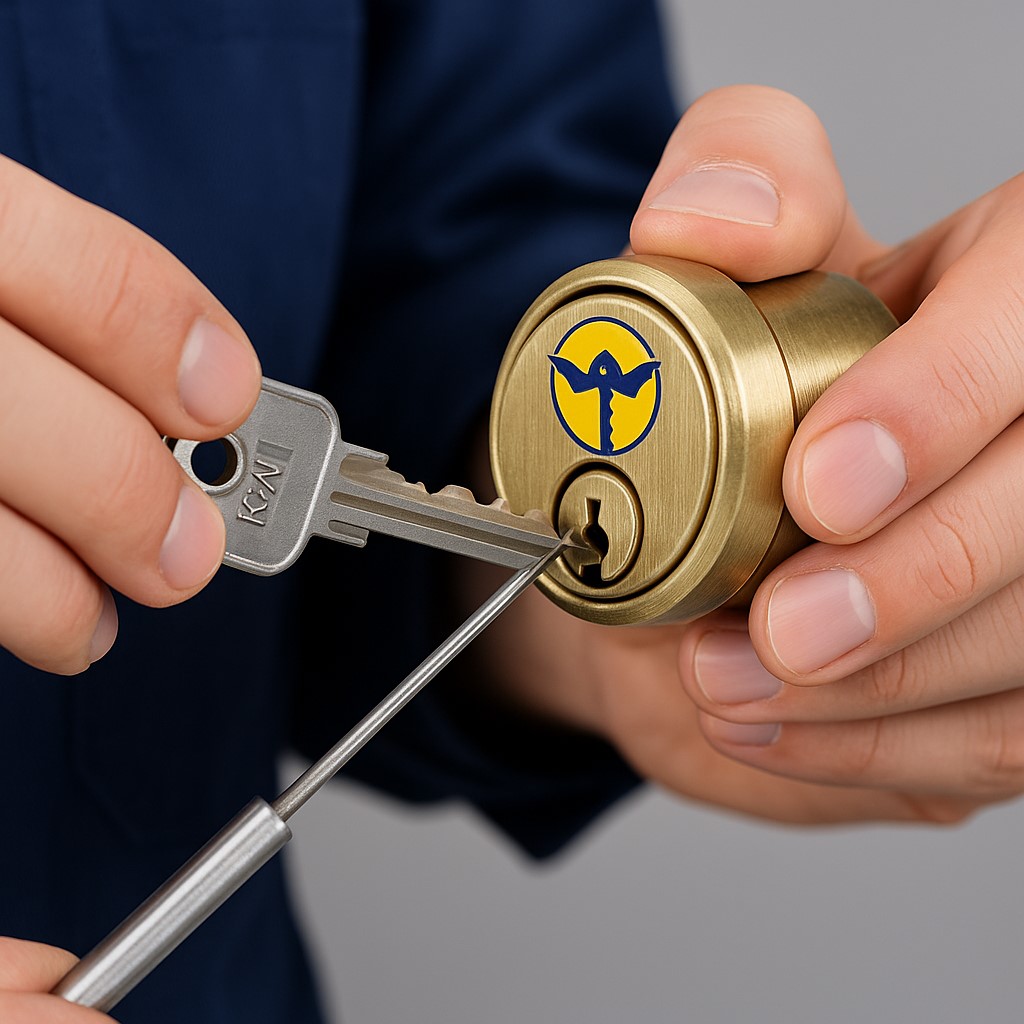In the realm of security and peace of mind, the significance of having a backup locksmith cannot be overstated. Whether you find yourself in need of a routine change of locks in Kendall or facing an unexpected emergency, having a trusted locksmith in Kendall ready to assist is a proactive measure that can make a… Continue reading Safeguarding Your Security: The Crucial Role of a Backup Locksmith in Kendall for Routine Changes and Emergencies
Secure Solutions: Affordable and Innovative Locks in Kendall, with Expert Guidance from Local Locksmiths
When it comes to securing your space, finding innovative locks at affordable prices is crucial. One excellent option is to explore local hardware stores or specialized security retailers in Kendall. These establishments often offer a variety of innovative locks that cater to different security needs. If you’re considering a change of locks in Kendall, it’s… Continue reading Secure Solutions: Affordable and Innovative Locks in Kendall, with Expert Guidance from Local Locksmiths
Ensuring Home Security: A Guide to Assessing and Enhancing Your Property’s Safety in Coral Springs
In Coral Springs, safeguarding your home is a top priority, and assessing your property’s security status is a crucial step in achieving peace of mind. Here’s a comprehensive guide on how to properly evaluate and enhance your home’s security: By following these steps and emphasizing the importance of changing locks in Coral Springs, you can… Continue reading Ensuring Home Security: A Guide to Assessing and Enhancing Your Property’s Safety in Coral Springs
Swift Solutions to Lockouts: The Importance of Professional Locksmith Services in Coral Springs
When facing the frustrating situation of being locked outside your house or car in Coral Springs, quick and effective solutions are essential. Here are steps to swiftly address the issue, emphasizing the importance of professional assistance: Working with a professional locksmith not only ensures a quick solution but also minimizes the risk of damage to… Continue reading Swift Solutions to Lockouts: The Importance of Professional Locksmith Services in Coral Springs
How Many Times Can You Rekey a Lock?
Rekeying is a practical and cost-effective method to maintain security in both residential and commercial properties anywhere in Florida whether in Coral Springs or beyond. Rekeying is a process that involves altering the lock’s internal pins and springs to make it work with a new key. Understanding how often you can rekey a lock and… Continue reading How Many Times Can You Rekey a Lock?
What is the difference between an ignition switch and ignition cylinder?
The ignition system of a vehicle consists of two primary components: the ignition switch and the ignition cylinder. While they work in tandem to start and operate the vehicle, they serve distinct functions. In Palm Beach, understanding the difference between the ignition switch and ignition cylinder is crucial, and consulting a locksmith for any related… Continue reading What is the difference between an ignition switch and ignition cylinder?
What are the symptoms of a bad ignition lock cylinder?
A faulty ignition lock cylinder can manifest various symptoms, causing issues with starting and operating your vehicle. In Palm Beach, encountering these symptoms may prompt you to seek the services of a locksmith for diagnosis and potential repairs. Here are common signs of a bad ignition lock cylinder: Importance of Consulting a Locksmith in Palm… Continue reading What are the symptoms of a bad ignition lock cylinder?
What to do when the key won’t turn in the ignition?
Encountering a situation where the key’s stubborn, in the ignition can be quite frustrating and inconvenient especially when you’re in a rush to get your vehicle moving. When dealing with this problem in Palm Beach it’s crucial to handle it effectively. Here are some steps to follow along with the significance of getting a locksmith… Continue reading What to do when the key won’t turn in the ignition?
What is a lock cylinder?
A lock cylinder is a crucial component in various types of locks, including those used in homes, businesses, and vehicles. It is the part of the lock that houses the keyway and tumblers, determining whether a key can turn and operate the lock. In the context of car lockouts in Palm Beach, understanding the lock… Continue reading What is a lock cylinder?
How does ignition tumbler work ?
The ignition tumbler, a crucial component of a vehicle’s ignition system, plays a pivotal role in the process of starting the car’s engine. Understanding how the ignition tumbler works is essential for drivers in Boca Raton, especially when facing potential car lockout scenarios. The ignition tumbler is essentially a cylinder lock located within the ignition… Continue reading How does ignition tumbler work ?


